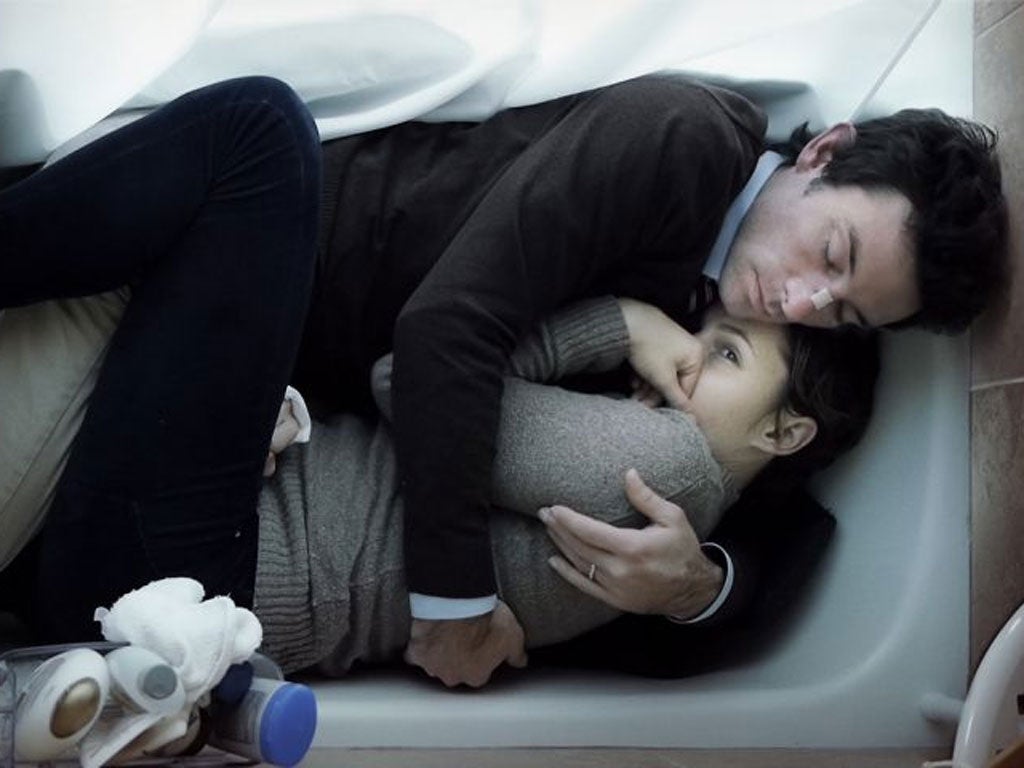Jonathan Romney on Upstream Colour: Come on in, the water is dazzling
You think cinema has nothing new to say? Then plunge into this work of exhilarating originality

I've been reviewing films on these pages for 12 years, and this is my last column in this slot – but in all that time, I don't think I've seen anything as gloriously perplexing as this week's release. I've dutifully watched the good, the bad and the ugly – and all too rarely, the downright bizarre. But it's a pleasure to sign off with a film as authentically and exuberantly strange as Upstream Colour. I'm tempted to say that Shane Carruth's film is unclassifiable, but that's not strictly true. You could classify it as science fiction, love story, free-form film poem or philosophical reverie, but none of these tell the whole story. Suffice to say, it ain't Pacific Rim, and you should go and revel in it on its own intoxicating terms.
The ultimate go-it-alone indie operator, Carruth wrote, produced, directed, photographed and co-edited Upstream Colour, as well as writing the music and co-starring. One of the most singular figures in US cinema, Carruth made a mind-bending debut in 2004 called Primer, a no-budget, time-machine story that looped itself into vertiginous narrative fractals, and sparked a whole online subculture of explanatory diagrams.
Radically scrambled as Primer was, it made perfect sense within the logic of time-travel narrative. The much more fluid Upstream Colour has no such familiar points of reference, and seems to have burst into the world fully formed in its bizarre beauty. It starts with images of orchids, worms and a powder that apparently induces telepathic behaviour. A woman named Kris (Amy Seimetz) is then force-fed a worm by a man listed in the credits only as The Thief (Thiago Martins), who uses mind control to steal all her money. Unable to remember her ordeal, the nevertheless damaged Kris builds a new life for herself, then cautiously starts a relationship with Jeff (Carruth himself), who's lost his job after being caught embezzling, and now works under the radar while living in anonymous hotel rooms.
The suggestion is that he too has had his life stolen – otherwise, why would he and Kris have the same mysterious mark on their ankles? Keep an eye on these tiny incidentals, and be sure to watch Upstream Colour on the big screen – it pays off when it comes to spotting the fine detail.
Also involved in the story – and it is a story, although it may seem like a free flow of sounds and images – is a man known only as The Sampler (Andrew Sensenig), who combines a career in pig farming with a sideline as an experimental sound recordist, gleaning sounds from the environment (the bass throb of speakers, the scratched surface of waterpipes ...) and turning them into musique concrète. Since that is pretty much how Carruth composed his own score for the film, it's tempting to say that the Sampler, who directly affects the couple's fates, is the figure of the director in the film – although I'd be surprised if even the industrious Carruth had time for pig farming on top of everything else.
Meanwhile, the pigs play an essential part, as do paper chains, as do copies of Thoreau's 19th-century manifesto on ruralism and self-sufficiency, Walden. Just don't ask me how they fit together – see the film and construct your own paper chain of meaning.
For all its elusiveness, Upstream Colour is remarkably affecting. That's partly because it signifies so richly on every level – in its labyrinthine editing patterns, in the beauty of Carruth's camerawork, in the eerie hum and whirr of his music. And it's also partly because you believe in the love story, thanks to Seimetz's finely vibrating sensitivity and Carruth's own more spiky humanity. It's one of the oddest romances in cinema, a truly avant-garde valentine.
Naysayers insist that it's too late to expect anything new from cinema, but Upstream Colour gives me faith that the art form can always be reinvented – sometimes out of little more than the irreducible difference of a film-maker's imagination.
There's another exhilaratingly different film out this week, and I'll give you this one for free – Paolo Sorrentino's delirious Fellini tribute The Great Beauty, an Aperol spritz of a Roman fantasia.
So long, then, and thanks for your interest, support and sometimes hostility over the years (some of you really took up the cudgels to defend Happy Feet). As they used to say in the movie business, see you in the ninepenny stalls.
Join our commenting forum
Join thought-provoking conversations, follow other Independent readers and see their replies
Comments
Bookmark popover
Removed from bookmarks